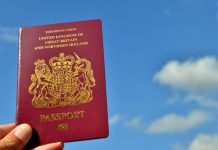Thailand and Cambodia lead the visa way
One of the biggest tests of the potential for the AEC to live up to its ambitious aims is the ‘conflict’ between various member states of ASEAN over territorial issues.
Arguably, the most potentially divisive is the border issue between Thailand and Cambodia over the Phra Viharn/Preah Vihear temple complex and surrounding region. The argument provides a vey real example of the overall potential dramas facing the AEC: nationalism versus the greater, common good of the region.
The case has been heard before the International Court of Justice (ICJ) once before, with a verdict handed down in 1962, and in April it was once more being fielded by the world body.
The 1962 verdict left some questions unanswered. Apart from not being a unanimous verdict (there were three prominent judges who dissented with the majority), the issue of ownership of the area immediately surrounding the temple was left in abeyance.
Since military action between the two sides last erupted a couple of years ago, but in July 2011 the ICJ established a 17-square-kilometre demilitarised zone and ordered both sides to pull back. That they did so was due to pressure from other ASEAN member states and, it has to be said, the more personal cordial relations enjoyed between Cambodian leader Hun Sen and Thai prime minister Yingluck Shinawatra.
In what can arguably be seen as an attempt to lead their fellow members by example, Thailand and Cambodia became the first in ASEAN to institute a visa waiver between their nationals and also reached an agreement on a common visa.
These measures have greatly increased cross-border tourism, to the extent that whatever might have been lost in revenue terms from visas has probably been more than made up by individual spending on both sides of the borderline.
The question is whether pragmatism will outweigh nationalism. On both sides of their common border, local inhabitants have benefitted from tourism and cross-border trade. Most villagers on both sides of the border share an almost common language and heritage and a simple line on a map means all-but nothing. Of course, to the political masters in Bangkok and Phnom Penh this is of limited interest, unless the money flowing in is substantial.
Then again, back in 2004 when Thaksin Shinawatra was still prime minister and Thai-Cambodian relations were strong, Thailand agreed to the Cambodian desire to ask for UNESCO recognition of the site. The only condition imposed by Thailand was that demarcation was a separate issue.
As far as future AEC conflicts are concerned, how the politicians, military and public opinion handle whatever verdict the ICJ hands down this time will be a litmus test for the cohesiveness of the whole structure post 2015.









